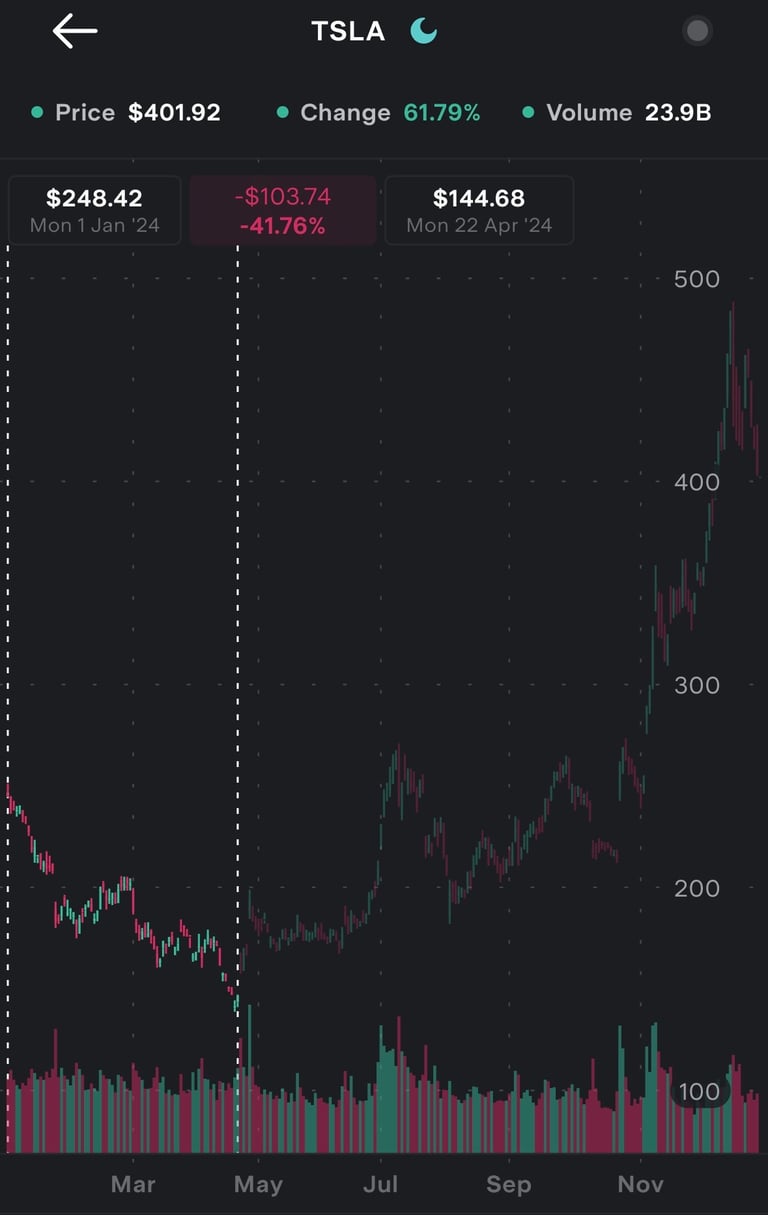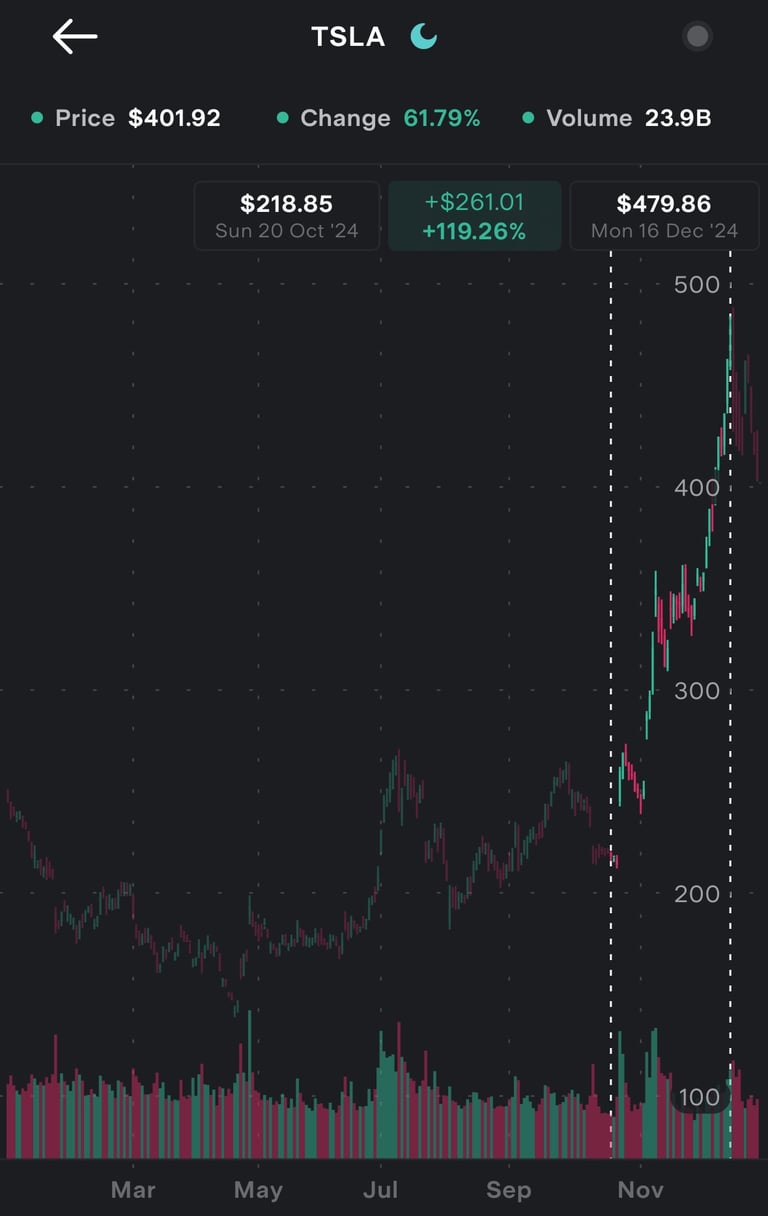The Two Marketing Titans Steering the World’s Biggest Powerhouse
Neither Donald Trump is a politician, nor is Elon Musk a genius
1/2/20255 min read

Elon Musk, Donald Trump, and the Future of the U.S. Economy: A Tug of War Between Visionaries and Realities
It’s no secret that the mere mention of Donald Trump can set off a cacophony of reactions. His presence in American politics has been as polarizing as it has been loud. Yet, instead of amplifying the noise, perhaps it’s time to take a more measured approach—looking at the big picture and assessing how his policies will affect not just the U.S., but the world at large. Though it's early days, we can play the role of the soothsayer and peer into the crystal ball to speculate about what the coming years might bring. And at the center of it all? Elon Musk.
As we ponder what Trump’s government will look like in action, it’s crucial to recognize Musk’s role—not just as a tech mogul, but as a key player within the government. With Musk recently appointed to head the Department of Government Efficiency (DOGE), he is now positioned as the potential angel or devil on Trump's shoulder. But is Musk really the savior of the American economy, or is he simply a puppet master with a set of personal interests?
Trump’s Political Landscape: The Real Power Behind the Curtain
One thing is clear: Trump, much like the CEOs of global financial giants like BlackRock’s Larry Fink, is not merely a representation of the “average” American. Rather, he symbolizes the interests of the elite. His ties to powerful financial entities, multinational corporations, and NGOs (like the Glasgow Alliance for Net Zero) suggest that Trump is heavily aligned with the establishment forces behind the scenes. When you add his unwavering support for Musk during the Republican campaign, the picture becomes even more complex.
Trump’s policies—such as tax cuts, trade tariffs, and protectionist stances—are all part of a broader strategy to shape the U.S. economy in ways that benefit these corporate interests. But whether these moves will result in long-term success or short-term chaos remains uncertain.
Elon Musk: Genius or Marketer?
There are two prevailing views when it comes to Elon Musk. Some see him as a genius, a revolutionary who has propelled humanity into a new era of technology and space exploration. Others, however, believe Musk is a master manipulator—a businessman who knows how to sell a dream, even if that dream doesn’t necessarily lead to tangible progress for society.
Musk’s ventures—SpaceX, Tesla, Starlink, and now X (formerly Twitter)—are heralded as monumental achievements. But when you scrutinize them under a magnifying glass, their societal impact becomes more ambiguous. Take Tesla, for example: while it has revolutionized the electric vehicle market, much of its success is tied to government subsidies and tax credits. Without these incentives, Tesla’s bottom line might look far less impressive. Moreover, despite Musk's claims of reshaping the future, one can’t help but wonder how much of his success is merely a carefully orchestrated marketing campaign. His ventures, which often resemble sci-fi movies come to life, haven’t necessarily solved the world’s biggest problems.
Musk’s aggressive pursuit of his goals—often driven by personal vendettas or a desire to “win” at all costs—raises questions about his true motivations. His market maneuvers, from inflating the value of Tesla stock to promoting meme coins, suggest a certain level of psychological complexity that goes beyond pure innovation. In many ways, Musk is more of a modern-day showman than a groundbreaking scientist like Einstein or Hawking, who had the foresight to understand the broader consequences of their work.
A Complex Partnership: Musk and Trump’s Potential Clash
What’s particularly intriguing about this new political alliance is the tension between Musk’s economic interests and Trump’s more nationalistic, protectionist policies. Musk, after all, is deeply invested in the global market. He needs access to China for both production and sales, particularly for Tesla’s electric vehicles, which rely on Chinese manufacturing and resources. A trade war with China, which Trump has been vocal about, could put a severe dent in Musk’s plans for global expansion.
Furthermore, Musk’s environmental stance, which leans heavily toward promoting sustainable energy and combating climate change, stands in direct contrast to Trump’s historical dismissals of climate science and environmental regulations. Under Trump’s administration, policies that might have benefited green technology companies like Tesla could be rolled back in favor of more fossil fuel-friendly measures.
The Economic Ramifications: A Perfect Storm?
Trump’s trade tariffs and fiscal policies—designed to protect American jobs and industries—may have short-term appeal, but they come with long-term risks. The U.S. is already grappling with a colossal national debt, nearing 123% of its GDP. Protectionist policies could exacerbate this problem, raising costs for American consumers and leading to inflation. The U.S. relies heavily on cheap goods and raw materials from countries like China, and any disruption in this supply chain could have catastrophic consequences for industries across the board, including tech, agriculture, and manufacturing.
On the other hand, Musk’s role as the co-head of DOGE could offer some stabilizing influence. While he may have personal interests at stake, Musk has proven to be an astute businessman capable of navigating complex global markets. His position within the government could serve as a counterbalance to the more extreme protectionist policies Trump might attempt to implement.
The Future: A Balancing Act
As we move forward, it’s clear that both Musk and Trump will play crucial roles in shaping the future of the U.S. economy. While Trump’s policies could usher in a period of heightened protectionism, potentially hurting global trade and stifling innovation, Musk’s leadership in government could help mitigate some of these risks. If there’s one thing that seems certain, it’s that these two figures, despite their differences, will need to find a way to work together to prevent the U.S. from spiraling into economic isolationism.
At the heart of it all, we’re witnessing a clash of ideologies—one that pits globalism against nationalism, innovation against tradition, and progress against the status quo. While it’s impossible to predict the outcome with certainty, one thing is clear: the next few years will be pivotal in shaping the future of the U.S. and its role on the global stage.
In the end, perhaps we’ll look back and realize that this era wasn’t defined by a man or a policy, but by a series of events that forced us to rethink the way we approach politics, business, and the economy. But for now, all we can do is watch as this intriguing partnership plays out—wondering whether the angels or the devils will have the last word.


Tesla stock market price performance during its worse net revenue quarter apart from 2020. Net revenue reported was 55% down compared to previous period. Stock market price mirrored it hitting 41% down the exact day Tesla released.


Tesla stock market price performance after Elon pledged 75 million USD to support Trumps campaign, what was the reaction? Stock market rallied to hit 119 % in less than two months what means that the sentiment as psicological as it is, is groundless and should only be used to cash out not to predict any entry worth trade.
Investment Partnership
Expert asset management for your financial future.
Wealth
Growth
estebanfelipegutierrez@gmail.com
+61 0415956762
© 2024. All rights reserved.
